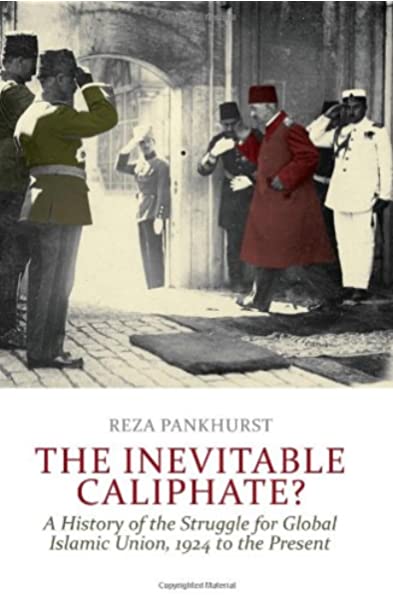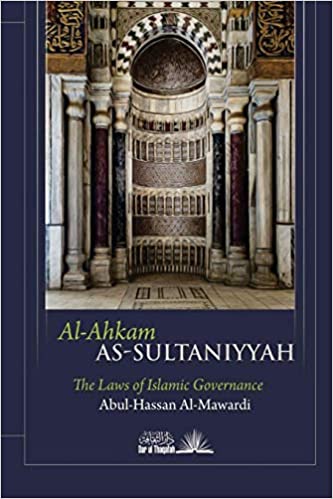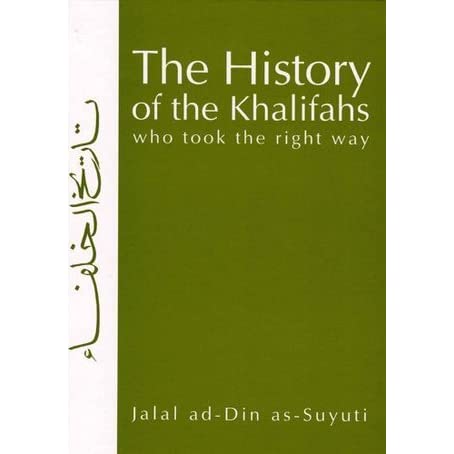Following our latest podcast episode, we turn to the topic of Islamic governance in this edition of our bimonthly book recommendations. These works span the fields of history, theory, and practice, providing various angles from which to consider Islamic politics today.
Have a title you think we should read? Comment below or let us know on Twitter @QarawiyyinProj.
Read our previous recommendations here
1) Longing for the Lost Caliphate: A Transregional History
By Mona Hassan

An intriguing work on Islamic political thought, Longing For the Lost Caliphate takes an academic approach to exploring the significance of the caliphate by analysing the aftermath of the fallen caliphates: the Abbasid Caliphate (1258) and the Ottoman Caliphate (1924). Hassan assesses how muslims dealt with the loss of an institution so central to their lives, and their attempts to revive and even redefine the caliphate in their specific contexts. She includes a plethora of scholarly opinions to help conceptualise the caliphate through both legal and theological perspectives, and a range of cultural artefacts to highlight the trauma and tragedy that characterised the post-caliphate Muslim world. Adapting to the impact of WW1, she looks at the birth of various movements trying to find a solution for balancing the timeless concept of khilafah and modernity — solutions that we are still searching for today.
Length: 408 pages
Highlight:
“In the modern context, however, the surging currents of nationalism, colonialism, materialism, and internationalism were especially influential in shaping the overall tenor of intellectual and social responses to the symbolic communal loss of the Ottoman Caliphate in 1924. Nationalist politics seeking to thwart European colonial incursions and to either embrace or reject the narrowing Turkification and centralization of the Ottoman Empire helped form the reactions of Muslims in Turkey, Egypt, Syria, Palestine, India, the Indonesian Archipelago, and elsewhere. Yet the ideas generated by other traditionally trained Islamic scholars, in Turkey and Egypt in particular, more closely paralleled patterns from the past, by forging jurisprudential accommodations of new political realities and by encouraging others to focus on the everlasting Divine.”
2) The Impossible State
By Wael Hallaq

A common concern regarding Islamic politics is the fact that seemingly no Muslim-majority country has established a successful modern polity. This sentiment fails to recognize that no modern state is a true attempt at Islamic governance.
The central argument of The Impossible State is that Islamic governance and the modern state are incompatible. To argue this, Wael Hallaq traces the origins of the modern nation-state — an import and a remnant of colonialism in the Muslim world — and exposes its underlying moral framework, encouraging Muslims not to take the political state of affairs for granted. He lists the defining characteristics of the state and its judiciary, and contrasts them with how the shari’ah was interpreted and implemented throughout Islamic history.
The Impossible State is a largely theoretical work, scarcely reflecting on current affairs in the Muslim world. The book is nonetheless useful for thinking about what the state actually is and where it comes from, as well as the spirit of the shari’ah and its superiority as a moral framework for governance.
Length: 272 pages
Highlight:
“Dwelling together on earth in peace is certainly a tall order, perhaps another modern Utopia, but subjecting modernity to a restructuring moral critique is the most essential requirement not only for the rise of Islamic governance but also for our material and spiritual survival”.
3) The Inevitable Caliphate
By Reza Pankhurst

The fall of the Ottoman Caliphate sent shockwaves throughout the global Muslim community in 1924. In the decades following, numerous movements emerged attempting to reestablish the institution they viewed as an obligation, but also as fundamental for future Muslim progress. The Inevitable Caliphate charts the development of these movements, and explores how — though in pursuit of a similar goal — they have taken sometimes vastly different paths. Pankhurst provides contextual histories behind the emergence of groups like the Muslim Brotherhood and Hizb ut-Tahrir, as well as summaries of their core beliefs. Their approaches are contrasted with Al-Qaeda, which — of the groups evaluated — was the only one that adopted a violent method of change. Similarly, groups outside of the Middle East and in diaspora Muslim communities such as Tanzeem e-Islami in Pakistan and Jama’ah-tul-Muslimeen in the UK are assessed.
Pankhurst argues that the breadth of approaches taken highlight how strongly the caliphate remains an ideal for Muslims, pointing to its inevitable presence in the discourse of Muslim countries in the future. Written prior to the emergence of ISIS, which has irrevocably biased the world’s understanding of the term khilafah, The Inevitable Caliphate is useful to understand how this idea was conceptualised by Muslim movements, many of whom have much longer histories and much broader support.
Length: 215 excluding footnotes
Highlight:
“…none of the movements studied, including the Brotherhood, view the nation-state as ideal or accept it by choice, but rather see it as an alien construct based on artificially imposed borders and divisions, and all proclaim their aim of unifying Muslim lands, whether in cooperation with the nation-state or through its removal. Though other movements studied all explicitly reject the nation-state as illegitimate and decry participation in the prevailing political system, this does not necessitate internal violence against the personnel of the state since, aside from Al-Qaeda, their methodologies are non-violent, radical and revolutionary.”
4) Al-Ahkam As-Sultaniyyah: The Laws of Islamic Governance,
By Abu’l Hasan al-Mawardi

A canonical text of Islamic political theory, Al-Ahkam As-Sultaniyyah offers an insight into the numerous considerations of classical Islamic scholars when approaching governance and politics. A prominent judge during the Abbasid era, al-Mawardi gives a comprehensive explanation of the conditions of the caliphate and the caliph himself, and delves into the numerous roles he is charged with undertaking. From appointing wazirs and organising the Hajj pilgrimage, to the supervision of the judiciary and even policies pertaining to agricultural production, the author highlights how Islamic principles and rulings were fundamental to political administration.
Far from being a power-obsessed treatise and detached from the people, al-Mawardi gives significant consideration to the implications of these functions for the public. This is particularly evident in the chapter on judicial redress, in which he highlights the importance of having channels by which corruption and unjust rulings can be challenged, starting with how to deal with abuses of power by state officials. Though extremely detailed, Dr. Asadullah Yate’s translation flows easily, such that the main points of each chapter are clearly reiterated throughout. Interspersed with Qur’anic verses, hadiths and stories of the Prophet Muhammad ﷺ and his companions, the functionality of Islamic rulings is continually evident. For anyone looking for an easy entry into siyasah shar’iyyah literature, Al-Ahkam As-Sultaniyyah is a great starting point.
Length: 362 pages, excluding footnotes
Highlight:
“When the person charged with investigating cases of wrongdoing takes up office, he should appoint a specific day on which he can investigate the claims of the litigants so that he may devote the remaining days to his responsibility for administration and organisation — except if he is one of the officers responsible solely for incidents of wrongdoing, in which case he is charged with investigation every day. He should be of pleasant demeanour and have good companions.”
5) Tarikh al-Khulafa, History of the Caliphs
By Jalal al-Din as-Suyuti

In this extensive history of the Islamic caliphate, Imam as-Suyuti gives a biographical account of the caliphs from the Khulafa ar-Rashidun (the Rightly Guided Caliphs) to the Umayyad and Abbasid dynasties. In great detail, he mentions the remarkable events that took place under their caliphal reigns, from the success of their expansionism to the sack of Baghdad. A comprehensive work, sharing stories of some of the best of men who were afflicted with many a trial. As-Suyuti maps out our rich Islamic history and reflects on the khilafah in practice and the impact of regional politics and culture in how the Khilafah existed throughout the times. Primarily an Arabic text, there are a few English translations; pictured is a translation focusing only on the Rashidun chapters. A full translation is also available.
Length: 562 pages (excluding index)
Highlight:
“In 816 Sadru’ddin-b-al Admi held the inspectorship of markets in addition to the office of Kadhi and he was the first who held the two together. In the year 819 Mankali Bugha assumed it and he was the first among the Turks in the world who held the post of inspector. In the same year a man appeared in Egypt who pretended that he had ascended into heaven and had seen the Most High and spoken with him, and many of the common people believed in him. A meeting was therefore convened regarding him, and he was asked to retract but he refused to retract: then the jurisconsult posted an order for his death on the testimony of two persons that he was of sane mind, but a number of doctors of medicine asserted that he was of unsound mind; he was therefore confined in the hospital.”
ARTICLE: Who Wants the Caliphate? | Yaqeen Institute for Islamic Research
By Ovamir Anjum
Summary: In this paper, Dr. Ovamir Anjum brings a much-needed balance to the discourse on Islamic governance, marrying academic insights, the current state of the Islamic world, and the deep-seated aspirations of Muslims — giving this discussion a context beyond ISIS. Commenting on both traditional and contemporary literature, the article adeptly highlights the many branches of this discussion, all the while arguing that such a vision is necessary from the perspectives of both revelation and reason. Debunking some common misconceptions, Anjum explains why Muslims should not shy away from this concept, but rather engage in creative and critical work around perceptions of statehood for the sake of a more just future for all.
Highlight:
“Maintaining the status quo in the Muslim world is a pipe-dream; the dream to change it is not. The current order is un-Islamic, unethical, and inimical to a decent future for Muslims and our human brethren at large. Those who wish to maintain it are a small and shrinking elite. To maintain these despotic states, these elites are having not only to suppress their majorities and kill or silence every last possibility of independent, moral thinking but also denature and distort Islam and massively brainwash Muslim societies.”
Read our review of Ovamir Anjum’s book, Politics, Law, and Community in Islamic Thought: The Taymiyyan Moment, here.


I have 2 recommendations:
1- al-Siyasa al-Shar’iah by Shaykhul-Islam Ibn Taymiyyah
2- Ghyath al-umam Bil-Tyath al-Dhulam by Imam al-Juwayni.
But, I’d also recommend works by the Egyptian Ustadh Mohamed seleem al-‘Awwa.
Side note: I’m not sure if the second has been translated it or not. So, keep that in mind.
May Allah make your project flourish.
LikeLiked by 1 person
In a recent interview on blood brothers podcast, ustadh Uwaimir Anjum expressed how he preferred juwaini’s work to that of mawardi’s, even though it isn’t as famous.
LikeLike
I would also recommend the Mughal book Ain e Aakbari. But it has been badly translated and mangled by orientalist translators.
LikeLike
Another recommendation on the concept of Khilafah is Maulana Maududi’s work “Khilafat o Malookiyat” (Khilafah wa Malookiyyah, in Arabic) translated into English as “Islam’s Political Order: The Model, Deviations and Muslim Response”.
LikeLike